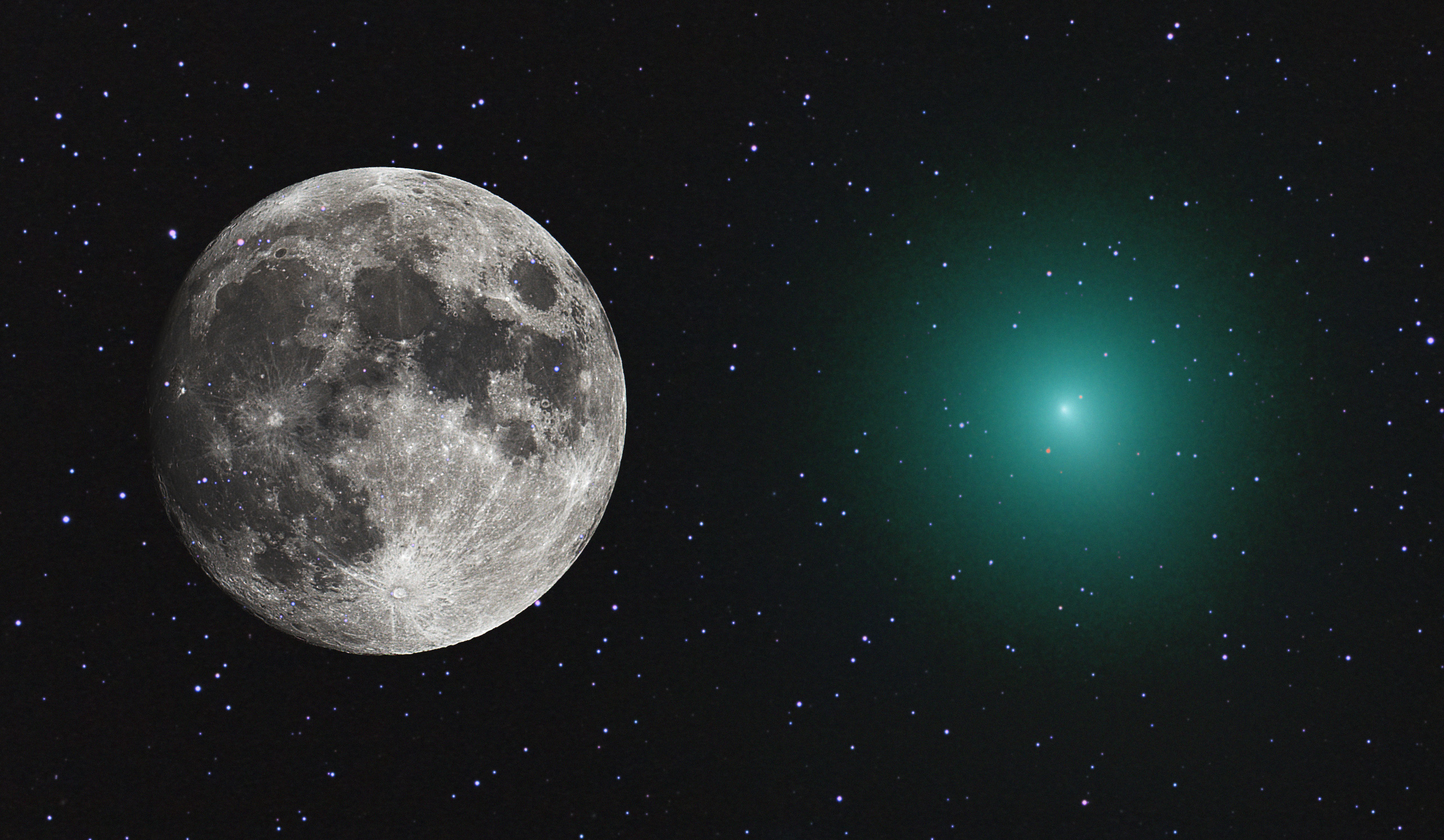Rings of Fire: 14 October 2023 Annular Eclipse Photos
On October 14th, an Annular solar eclipse crossed the Americas with a central path that was mostly over land and bookended by the Pacific and Atlantic Oceans, allowing millions to view the spectacle. As an Annular eclipse (from the word annulus or ring) the Moon appeared within the disk of the Sun at peak eclipse. This was due to the Moon having passed through apogee — the point in its orbit furthest from the Earth — on October 10th. By the 14th, it was still too small to cover the Sun completely. This created the Ring of Fire effect — a ring of light from the Sun that shown around the lunar disk. Because the Sun was never completely obscured anywhere along the central path, viewers were cautioned to keep eclipse glasses on for the entire event
The centerline of maximum Annularity started at sunrise off the Pacific coast of Canada, made landfall in Oregon and continued into Nevada, Utah, New Mexico and Texas. Across the continental United States, observers experienced at least 4m 40s of the Ring of Fire with the time increasing to 4m 50s in the later half of the path through Texas and the Gulf of Mexico. Over the Yucatan Peninsula this increased to 5m 00s. The greatest duration of Annularity peaked at 5m 17s in the Atlantic waters off the Nicaraguan / Costa Rican border. Peak duration stayed over 5m 00s through Columbia and stayed over 4m 00s through Brazil. The eclipse ended at Sunset in the Atlantic.
.

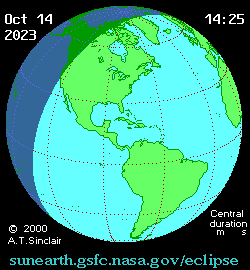
For map on left, solid green lines denote limits of partial visibility. Double red line is the path of maximum Annularity. See Key to Solar Eclipse Figures for more information. For animated map on right, red dot is path of maximum eclipse. Shadow represents area of partial visibility.
Tele Vue-60 from Rio Rancho, NM
From Rainbow Park in Rio Rancho, NM, home of the Rio Rancho Astronomical Society’s Rainbow Park Observatory, Tele Vue’s Peter Carboni set-up to record the entire eclipse in Hydrogen-alpha (Hα) light. This spot was very close to the center-line of the event and Annularity lasted 4m 50s. Maximum was at 10:37 am and created a spectacular Ring of Fire. Thin clouds passing above resulted in some flickering in the final video, but they were never thick enough to block the view.
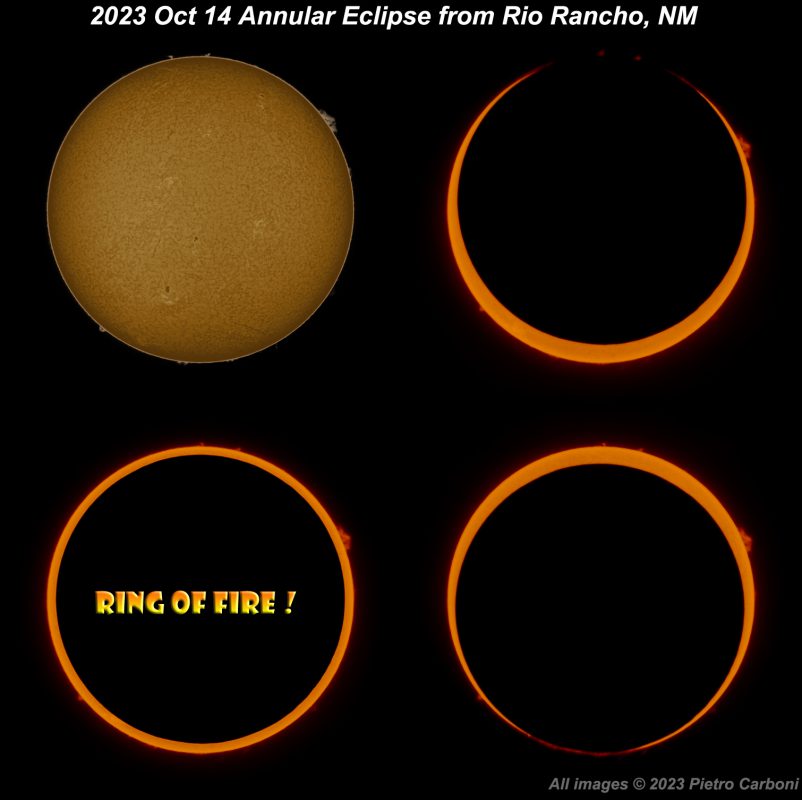
A full video of the eclipse can be viewed on YouTube. Most of the video was processed to show surface details on the Sun as the Moon passed over it. The frames around maximum Annularity were processed to enhance the Ring of Fire effect and solar prominences. The video works best at full-screen (1080p) with the volume turned up.
Tele Vue-85 Views from San Antonio, TX
AJ Garcia took these images with a Tele Vue-85 APO from San Antonio, Texas. A Thousand Oaks filter over the objective cut down the light enough for a Sony Alpha 7 IV camera to safety image the event. Maximum eclipse in San Antonio happened at 11:54 am local time and the Annularity lasted 4m 21s. AJ had to fight the clouds to get the images, but, “in the end I think the clouds made the photo of annularity more interesting.”
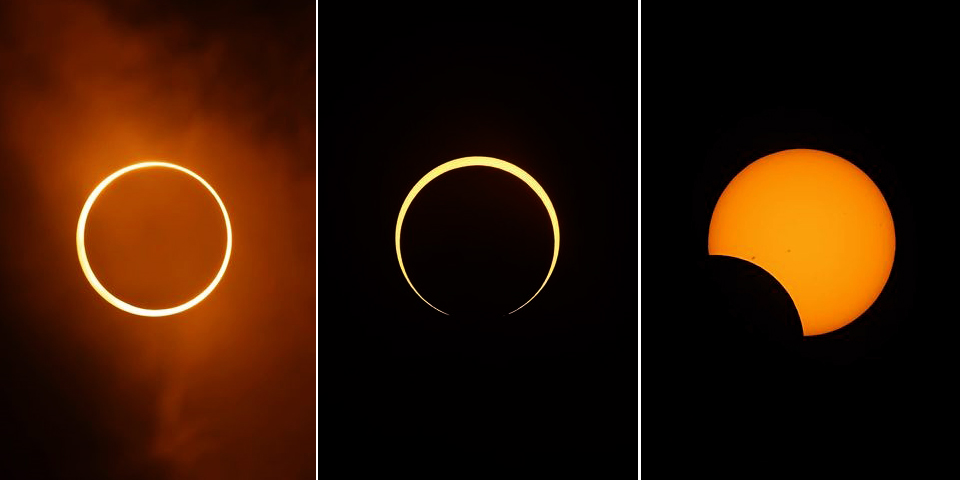
Tele Vue-85 Animation
Mike Broussard also employed a Tele Vue-85 APO and Thousand Oaks Solarlite Polymer filter, but with a Tele Vue TRF-2008 0.8x Reducer/Flattener to achieve f/5.6 (480mm). Imaged through UV/IR filter using QHY183c camera.
Tele Vue-NP101is Ring of Fire
Jeremy Evans’ observing group had 4 minutes of Ring of Fire viewing at Fishlake National Forest in Utah. A time-lapse of the event was taken with a Tele Vue-NP101is APO with Large Field Corrector (LCL-1069) and full-frame Canon 5D Mark IV DSLR. This was made into a video video on YouTube.
Tele Vue-NP101
David Brodie was off the central path, but managed to capture a partially eclipsed Sun showing sun spots from his location in Ontario, Canada.
The clouds parted at just the right time and we had over 30 minutes of blue skies before the clouds moved back in. Very Impressive sight and we are really looking forward to the total solar eclipse that will be seen from the Niagara area next April 8th just south of us here in Ontario.
Below is a single frame made with the Tele Vue-NP101 APO and IDAS Nebula Booster NBZ 2 plus Kendrick Photographic Solar Filter with Solar Finder ND3.8. The camera used was a full-frame Canon EOS 6D Mark II (modified) riding on Sky-Watcher HEQ5 PRO mount.
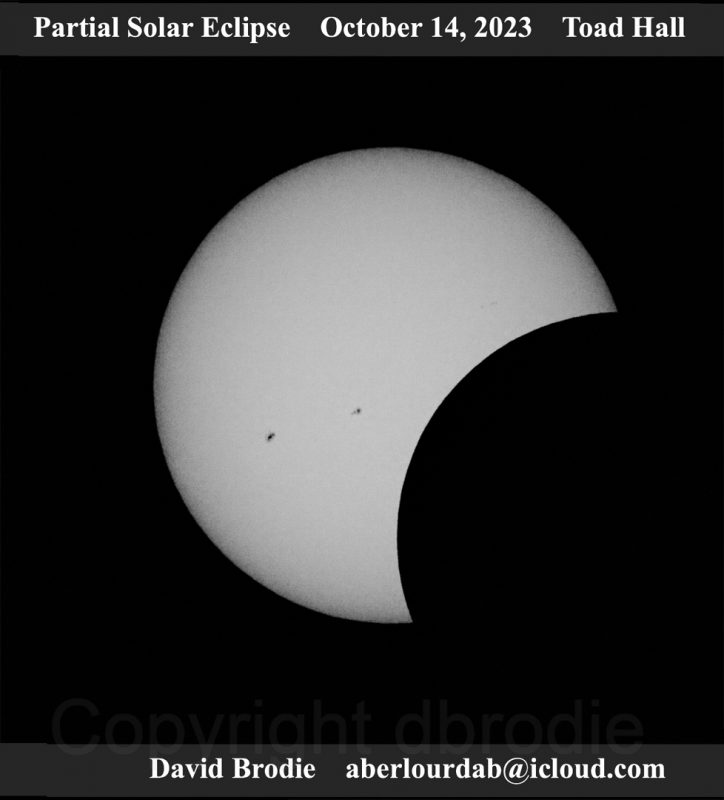
Did you observe, sketch, or image with Tele Vue gear? We’ll like your social media post on that if you tag it #televue and the gear used. Example:
#televue #tv85 #ethos #solareclipse
Do you want your Tele Vue images re-posted on Tele Vue Optics’ Social Media accounts? Use this hashtag for consideration:
#RPTVO
More Info
- Tele Vue telescope Secrets blog post.
- Tele Vue Telescope Recommendations and Specs (PDF)
- All Tele Vue telescopes come with a 5-year Limited Warranty
- Review the October 14, 2023 Annular Eclipse on the Time and Date website.




